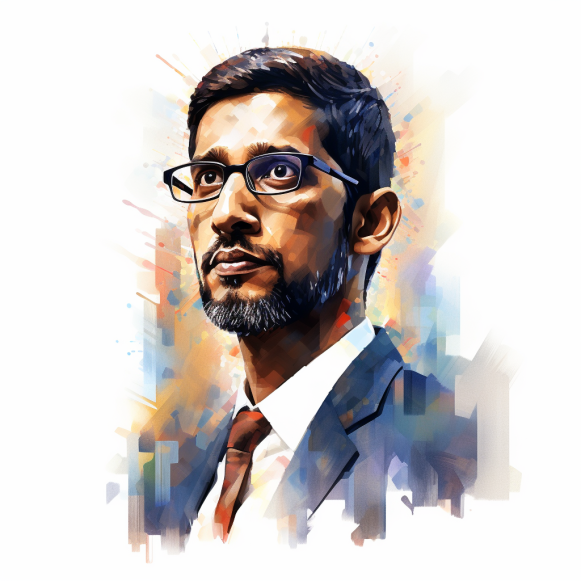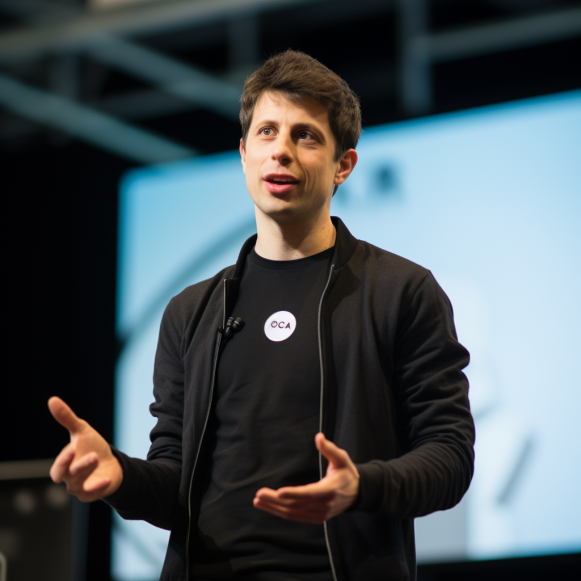How Abu Dhabi’s $276 billion Mubadala sovereign wealth fund is investing in software in the new age of AI

- Insider interviewed Ali Osman, head of technology and software investments at Mubadala.
- He shared insights on AI and the future of software.
- The boom in generative AI has made ownership of quality data even more important, he said.
For many technology investors, the last few years have been a roller coaster ride of surging pandemic valuations, a miserable drop, and then an AI-powered revival.
Ali Osman, head of technology and software investments at Abu Dhabi’s massive Mubadala sovereign wealth fund, has consistently invested and is not afraid to put more money to work.
“What keep me awake at night?” “I actually sleep pretty well,” he told Insider in a recent interview.
Mubadala manages about $276 billion in assets, and Osman, who was born in Morocco, decides how much of that money is invested in technology companies. He and his team specialize in private equity and focus on business software, making direct buyout investments as well as indirect bets through major PE firms.
Osman collaborates with many of the largest and most successful private equity firms in the technology sector, including Thoma Bravo, TPG, and Bain Capital. Mubadala joined forces with Vista Equity Partners to invest $2.3 billion in SalesLoft in late 2021. A few months ago, it agreed to buy Medallia for $6.4 billion from Thoma Bravo.
Why software?
“As hot and over-covered as the software market appears to be right now, there are more opportunities than available capital and mindspace,” Osman said. “Our pipeline is quite extensive.”
Because of the softer economic environment, businesses are under pressure to improve their operating performance, so many are turning to software to become more efficient, he explained.
“Software allows you to do more at a lower cost and enables scale,” Osman added. “This isn’t about cutting costs. There is a tremendous opportunity to use software to drive growth and leverage your intellectual property and data to become more competitive.”
His team seeks companies that provide “sticky” software that customers enjoy and even rave about. Osman is aware of net promoter scores, which are used in the industry to assess customer loyalty and satisfaction.
“When we use that lens, these businesses have been resilient despite challenging times and difficult decisions that some customers have had to make over what they need for their software stack,” he explained.
AI uncertainty and data
The rise of large language models and the generative AI boom has introduced a significant new variable to software investing. Some venture capitalists believe that some software-as-a-service, or SaaS, businesses may face long-term disruption.
According to Osman, the emergence of this new technology has increased the value of data for software companies.
“When I think of AI, I think of data,” he explains. “Let’s look at the high-quality data in our businesses to help these companies build a competitive moat.” One critical response to AI uncertainty is to determine whether we have control over the depth, fidelity, and quality of our data.”
In a world where AI is becoming more prevalent, investments must have a clear “data moat” and businesses must have ownership and agency over that data, according to Osman.
Mindspace and capital
According to Osman, private equity firms that specialize in software have a well-designed investment playbook, and the main bottleneck right now is the ability to replicate this successfully at scale.
“It’s the mindset that allows us to create value and run these businesses in the most effective and efficient way possible while driving topline growth,” he said. “How do you do it 15 to 20 times in a row?” That is difficult. Even large investors in this space can do a handful of these things.”
The other bottleneck is capital, or the amount of money available to invest in software companies.While there are more opportunities, private equity firms are generally less willing to take on risk and have less equity to invest in large buyouts.
Some companies raised large sums of money a few years ago and are now looking for new ones. Others are experiencing difficulties with portfolio company performance. Others may have failed to raise in recent years and are now finding it more difficult to do so.
“Every GP is dealing with their own reality right now,” Osman said of the general partners who manage private equity funds. “As a result, large equity checks are difficult to deploy.”
“There is generally less interest in doing mega transactions than there was a year or two ago,” he added. “The risk posture has changed.”
‘Not looking for exits’
According to Osman, Mubadala’s situation differs from that of many private equity firms. In the last few years, his teams have deployed approximately $5 billion in capital. That means the portfolio companies are still in the early stages of their private journeys.
“We are focused on getting the cost structure right with these businesses and getting them to grow healthily over the next few years,” said Osman. “We are not looking for exits right now.”
To maintain financial discipline, his teams underwrite deals with five- to seven-year time horizons. Mubadala, on the other hand, is not subject to the typical time constraints faced by private equity funds.
“If we want to own a business for a longer period of time, we don’t have to find liquidity,” Osman explained.






